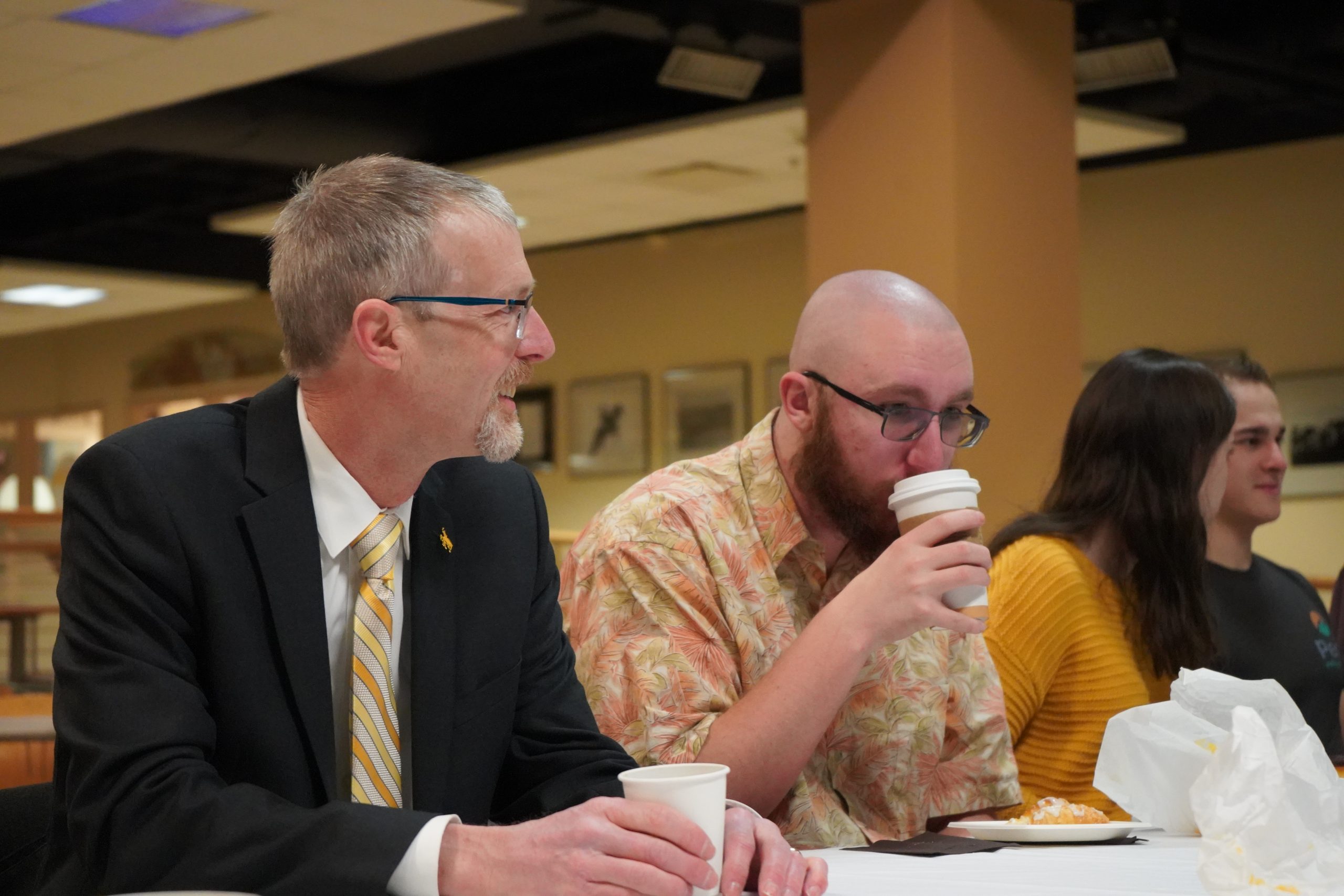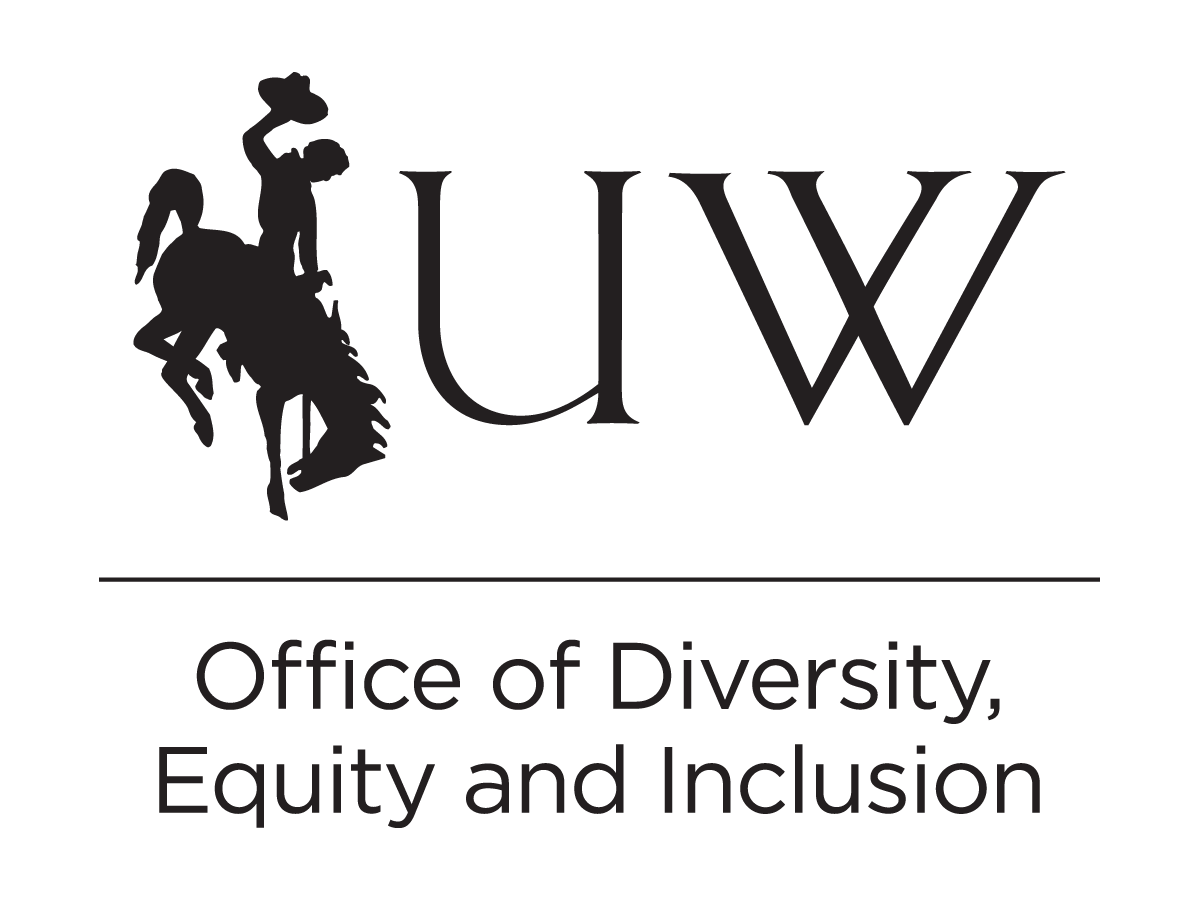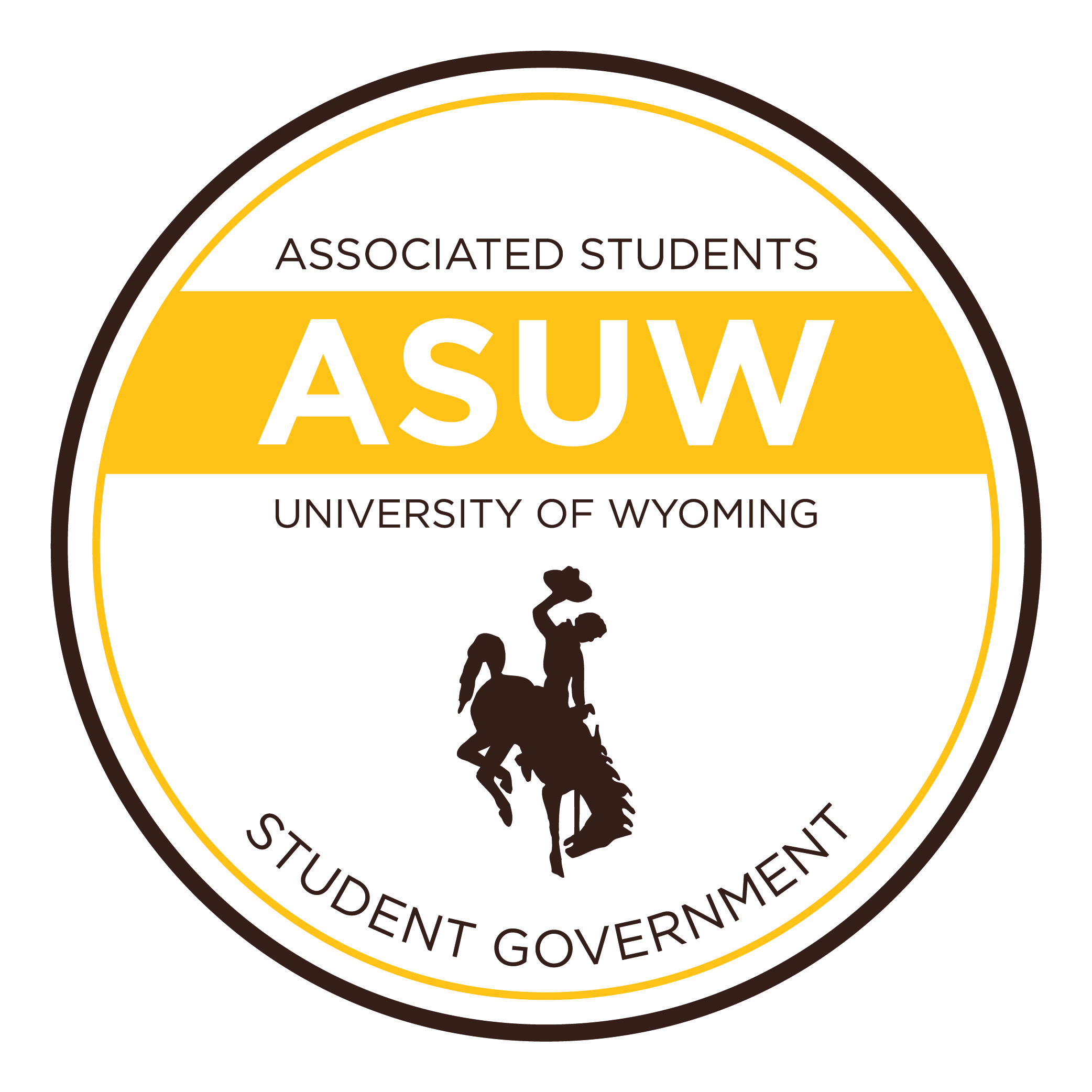Kaleb Poor
Staff Writer
As fallout from the Laurie Nichols scandal, deteriorating confidence in the Board of Trustees, and the fiscal consequences of a fossil fuel-dependent state economy brought tensions at UW to a near boiling point this week, three white men made their way to Laramie and one of them will be UW’s next president.
Each arrived on campus this week to make their case to students, faculty and staff that they would be the best person to lead UW over the mountain of adversity UW’s next top administrator will face.
“[They are] three very different finalists,” said former faculty senate chair Donal O’Toole. “I figure the trustees went with these so they’d have three pudding flavors. Actually, if that was the case, it seems a good way to go.”
Here is what students need to know:
Daniel White
White is the chancellor of the University of Alaska-Fairbanks (UAF), a position roughly equivalent to president.
As he made his pitch this week, White was quick to talk about his outdoorsy lifestyle, rural values and the success of diversity initiatives at UAF, where 21% of the student body are native american.
“I set out six goals for UAF, and one of those goals was becoming the global leader in Alaska native and indigenous studies,” White said. “It’s about being the destination for indigenous people of all kinds… we had one mural in our library that was offensive to many indigenous students, so we worked with a donor and got an Alaska native artist, took the mural down and put up a new one.”
During a forum with students, he refused to affirm that climate change is a result of human behavior – a matter of scientific fact – despite being given multiple opportunities to do so.
Additionally, those concerned about recent actions of the Board of Trustees may need to examine how White’s presidency might embolden the trends in their recent behavior. Last year, KTUU-Anchorage reported that White and his fellow chancellors had been instructed by UAF’s president and Board of Regents not to speak independently. White raised concerns about the request but ultimately fell in line.
During a faculty forum, U.S. Senate candidate and ecology professor Merav Ben-David asked White if he would support the future appointment of Trustees with academic backgrounds.
“The important thing in being on the Board is having perspective,” White said. “There is a former superintendent of schools on the Board, so yeah…I’m comfortable with the Board. I think the key is communication.”
Among White’s priorities for UW would be commercialization of research and innovation, a practice he put in place at UAF.
“Commercialization,” White said. “It’s about getting technology out of the university and into the hands of people who create wealth… It’s good for consumers [for universities] to patent.”
A 2018 study conducted by New York University (NYU) dampens that sentiment.
“The patent system uses private economic incentives to promote innovation,” wrote NYU researchers Christopher Ryan and Brian Frye. “…This is especially troubling because universities may use publicly-funded research to generate patentable innovations for private gain.”
Edward Seidel
Seidel has backgrounds in astrophysics, grid computing and economic development. Currently the vice president for economic development for the University of Illinois (UI) system, Seidel represents an attractive choice in a state with a struggling economy.
“He’d be a change agent,” O’Toole said. “I assume
[he]
would want UW to pivot toward more emphasis on grant-getting. His focus on economic development and innovation since 2014 meets the legislature [and the] governor’s lust for a more diverse economy, with UW helping prime the pump.”
Among the economic diversification initiatives being considered by the state is the technology of blockchain computing. Seidel said he thinks blockchain could be developed in the state, with UW leading the charge.
“I directed the National Center for Supercomputing Application, so I’ve been pretty engaged in this… I think it’s something that the state could really develop if it puts its mind to it,” Seidel said.
Seidel would be moving from a dozen-college system at UI to the much smaller institution of UW, dropping into a system with a budget half the size of his UI sponsored research portfolio alone. However, he said he believes the smaller size and budget at UW represents an advantage to the next president.
“The University of Wyoming is the place that should have the most important impact on the state, and it has the ability to do that,” Seidel said.
Gregory Bowman
Bowman is the dean of the College of Law at West Virginia University (WVU) and an expert in international trade policy. He is also a West Virginia native, WVU alumnus and land-grant enthusiast. During his visit to campus, Bowman reiterated his commitment to the mission of land-grant universities like UW, where he said it was the mission which drew his interest in the job.
“The mission of this institution resonates with me very deeply,” Bowman told students Monday. “I really celebrate and believe in the land grant mission of providing excellent, world-class opportunities to students, but also providing opportunities and access to education for folks who may not otherwise have it.”
Bowman spent a great deal of his time at UW reassuring faculty and staff that he would be committed to rebuilding trust in the administration, committing to a statewide “conversation tour” and refocusing UW’s strategic goals by Spring 2021.
“The recurring themes I’ve heard this morning and yesterday on campus is concern about trust,” Bowman said during his faculty forum. “Build those relationships, build the trust.”
O’Toole said he was concerned about Bowman’s qualifications.
“My concern is whether a law school background gave him the breath to drive a more complicated machine such as UW,” O’Toole said. “[Is] he ready for prime time?”
What to expect
The Board of Trustees will meet next Tuesday, where they are expected to make their decision and pick UW’s next president. They are taking public feedback into account via a number of online surveys which were circulated in emails to faculty, students and staff.
The Branding Iron will publish a formal presidential endorsement that Tuesday.



